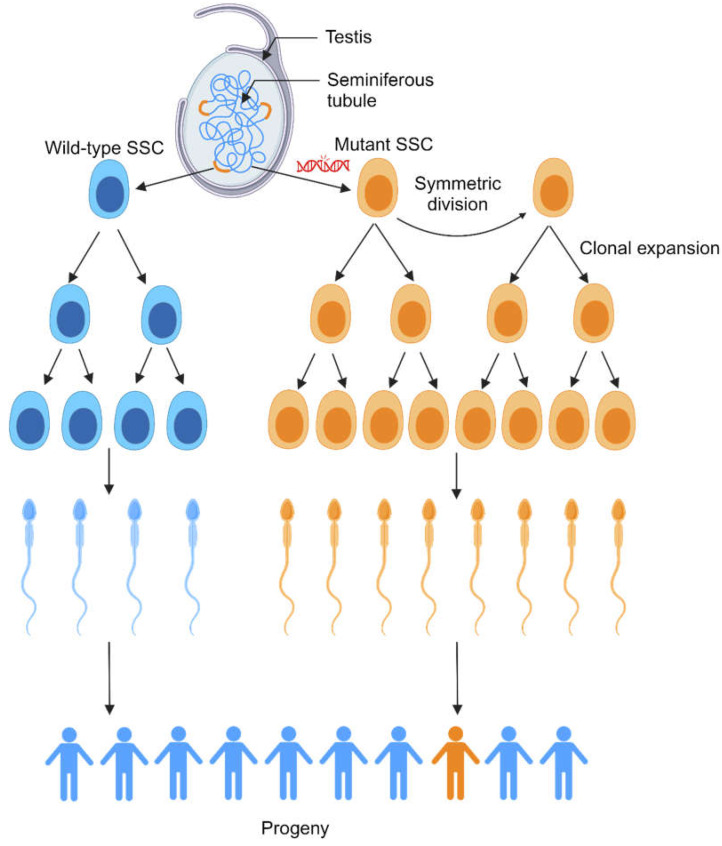Figure 6.
Paternal age effect (PAE) mutations result in clonal expansion of mutant spermatogonial stem cells (SSCs) (orange). Wild-type SSCs (blue) are sparsely distributed throughout the seminiferous tubules of the testis, and they divide to produce daughter cells that further differentiate to become mature sperm. SSCs mutant for PAE-associated genes undergo clonal expansion, leading to a much higher proportion of sperm produced per SSC than wild-type SSCs, possibly as a result of increased symmetric divisions. Therefore, a single SSC with a PAE-associated mutation is more likely to produce the sperm that ultimately fertilizes an egg than a single wild-type SSC. However, because PAE mutations are rare, the associated PAE disorders remain rare in progeny. Adapted from [41]. Created with BioRender.com.

